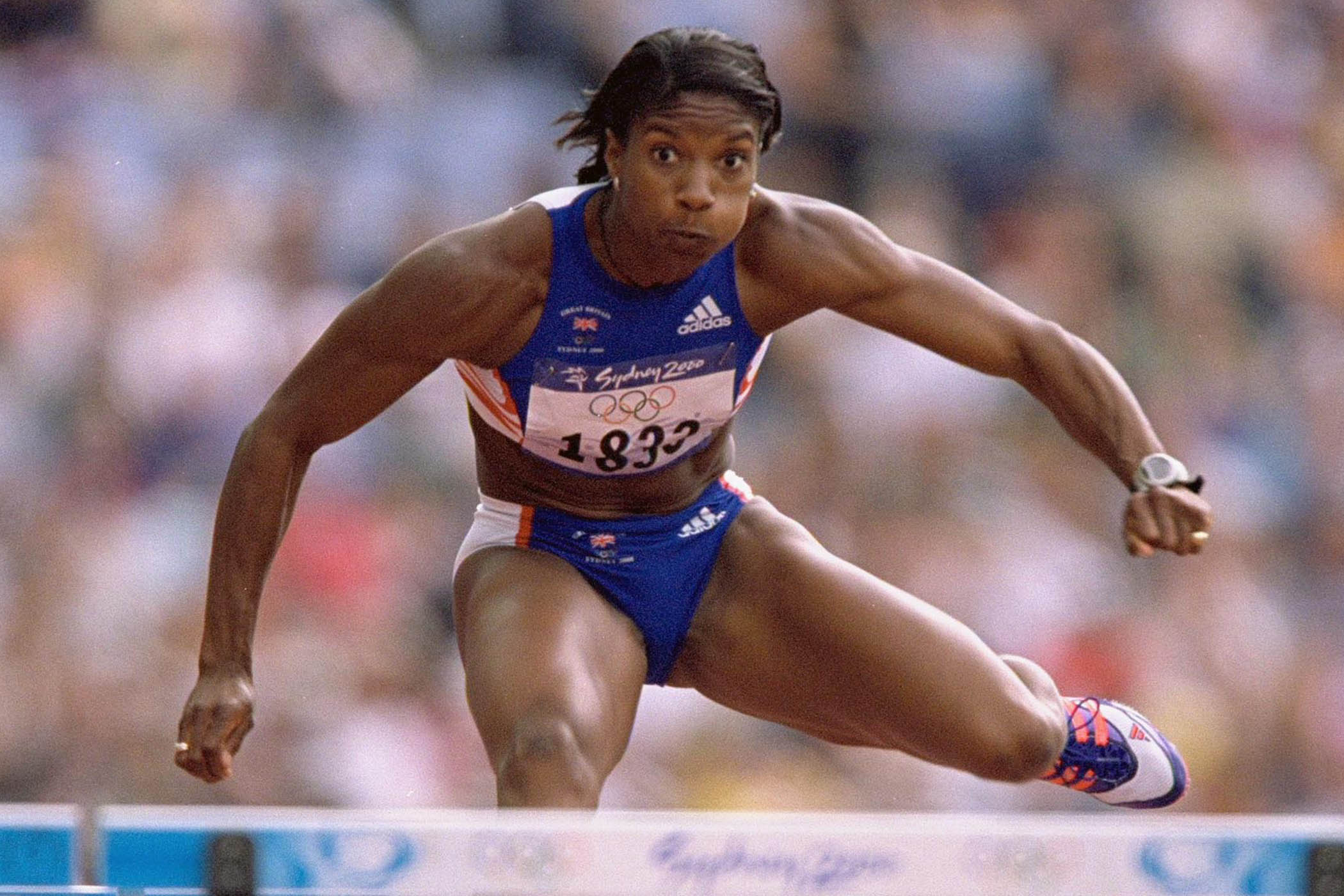Twenty-five years on, Dame Denise Lewis still smiles when she remembers how she celebrated her finest achievement.
Once the protocols and doping control were out of the way late into that drizzly Sydney night, the culmination of a career’s work was toasted alone, lying in bed at the Olympic village after a glass of prosecco smuggled in by a team-mate and some chicken nuggets.
She gently placed the gold medal on the pillow beside her “like a newborn baby” and stared at it for hours, relieved that a painful, anxious ordeal had ended in elation.
“It was like an out-of-body experience,” she says. “Exquisite joy. The only thing I can liken it to is giving birth.”
It was a sleepless night like no other, but little did Lewis know that her triumph would be an accelerant in the transformation of British women’s sport.
Legacy has evolved beyond its intended meaning since London 2012 but her impact remains tangible. Jessica Ennis-Hill hails 2000 as her career inspiration and Lewis continues to mentor Katarina Johnson-Thompson
The Lionesses’s latest feat in July underlined to Lewis how much has changed for sportswomen since she was the trailblazer fighting for attention.
“It’s immensely important, I remember how difficult it was to get any traction,” she says. “Unless you could perform at the highest stage, you’d get overlooked.
“Legacy for me is about real movement, real change. A lot of people just throw the word out there. Legacy should be about how you inspire, influence and create opportunity, people believing that something is possible and going for it. I think we’ve achieved that within heptathlon and women’s athletics.”
Lewis’s Sydney quest was nearly over before it started. She arrived as Team GB’s great hope, but her left achilles had been badly injured four months earlier, leaving her unable to train properly until a week before the competition. Heptathlon is, at its core, a battle of survival; a large chunk of the starting field will always be unable to finish. To start hurt is more often than not a signpost towards failure.
Newsletters
Choose the newsletters you want to receive
View more
For information about how The Observer protects your data, read our Privacy Policy
Day one was almost derailed by overconfidence in the high jump. An initial success at 1.75m prompted her to skip ahead to 1.81m for the purpose of “self-preservation”. Except three failures saw her drop to eighth place. “Honestly, in the pit of my stomach I felt sick. Going back to the village I was so angry.”
Rather than spiral into despair, she refocused to post an unmatched 15.55m in the shot putt. “Decent,” she says. “This is why I never underestimate the power of throws. I tell Katarina that all the time.”
The 200m was solid and left her third overnight. Not bad, but not brilliant. She returned to her room for a restless night.
Lewis knew she needed a strong long jump to haul herself back into gold medal contention. The results show 6.48m, again decent, but as she landed on her first attempt there was an agonising shot of pain in her right foot. “By the end of the competition we went straight to the medical room where this collection of men were puzzled by what to do.”
There was no time for an X-ray so it became a case of “damage limitation”. She was told to take just one javelin attempt. In the end she took two and a best of 50.19m moved her into first. “It wasn’t job done but I knew it was just one more event.” It meant she could finish the 800m eight seconds behind second-placed Yelena Prokhorova and still win gold. But the Russian was a better runner and across two laps of agony Lewis watched the gap grow and grow.
As the officials added up the points, the finishers gathered on the track to wait. “It felt like an age, in reality it was about seven minutes,” says Lewis. Prokhorova’s margin was confirmed as 6.52sec; Lewis had won gold.
“The emotion starts from your stomach and moves upwards into your face before the tingles just invade your body,” she says. “You know, there’s no pain. There’s just elation and an immense sense of relief. I’d done the ultimate.
“For every Olympics you watch, you remember you’re part of this very special club of athletes that not only dared to dream but got there.”
Photograph by Andy Lyons/Getty Images


